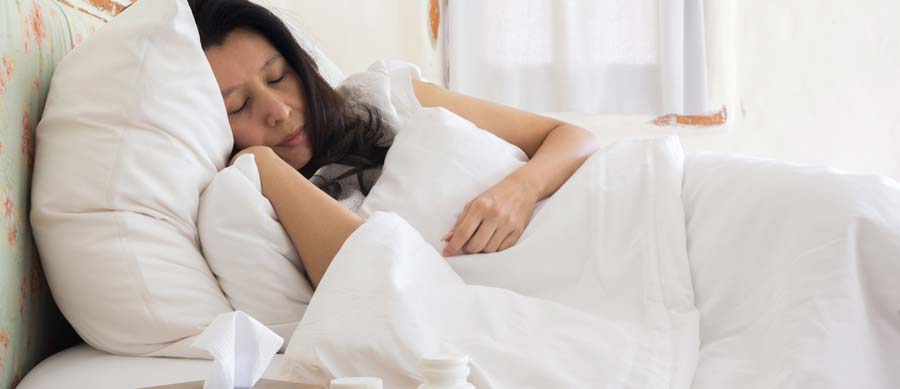
How to Detox from Alcohol at Home
Inpatient alcohol detox is the safest and most successful way to stop drinking.
Table of contents
- What Is the Most Successful Way to Stop Drinking?
- How Can I Naturally Remove Alcohol From My System?
- Alcohol Detox At Home: Is It Safe?
- How Do You Stop Yourself From Drinking?
- What Are the Risks of At-Home Alcohol Detox?
- What is the Success Rate for At-Home Alcohol Detox?
- At-Home Alcohol Detox: Pros and Cons
- How to Detox from Alcohol at Home
- How to Help Someone Detox
- What Are Some Alternatives to At-Home Alcohol Detox?
- How Long After You Stop Drinking Does Your Body Heal?
- Find Safe and Effective Alcohol Detox in Austin and Houston
Updated on April 5th, 2021
If you are struggling with alcohol abuse and you’re ready to quit drinking for good, you’ve probably considered detoxing from alcohol at home. Most people who are addicted to alcohol will experience uncomfortable alcohol withdrawal symptoms when they suddenly stop drinking. Although there are many benefits of quitting alcohol, the thought of having to go through withdrawal can be a deterring factor.
What Is the Most Successful Way to Stop Drinking?
Inpatient alcohol detox is the safest and most successful way to stop drinking. However, there are many different methods people may use to try to get sober. These include:
- Quitting cold turkey
- Setting limits (designating sober days, etc.)
- Using medications like ReVia or Vivitrol
- Using herbal supplements like kudzu extract and ashwagandha
These methods may not be safe or effective, especially without supervision and guidance from a doctor. While inpatient alcohol detox is the safest, most comfortable, and most effective way to detox from alcohol, this type of treatment may not always be an option due to financial reasons. In this instance, a person may need to know how to safely detox from alcohol at home.
In this blog, we’ll thoroughly review the risks of at-home alcohol detox and provide some alternative options. However, if you decide to detox from alcohol at home, we’ll also provide some important tips so you can do it safely.
How Can I Naturally Remove Alcohol From My System?
Your liver will do most of the work to naturally remove alcohol from your system. Otherwise, to flush the alcohol out of your system, you’ll primarily need to rely on normal bodily functions like sweating and urinating.
There isn’t very much you can do to speed up the process, but here are a few things you can do to help your body get rid of alcohol:
- Drink lots of fluids. Staying hydrated is one of the best ways to naturally remove alcohol from your system. Drink lots of water, tea, and Gatorade to give your body the tools it needs to stay hydrated and relieve dizziness and nausea.
- Eat. Although eating a giant cheeseburger is a poor idea, snacking on light foods like eggs or crackers can combat low blood pressure and sugar crashes caused by alcohol. Once you’re feeling up to it, consuming foods that are high in Vitamin D will also work to reduce vitamin deficiencies commonly experienced by alcoholics. Foods that are high in vitamin D include fortified foods, fatty fish, and red meat.
- Exercise. Although you might not feel like working out, breathing and sweating will help you flush the alcohol out of your body and help your liver do its job. Ideal forms of exercise during alcohol detox include yoga, light walks outside, swimming, or biking.
According to Psychology Today, several other natural remedies may also reduce your discomfort and the severity of cravings during alcohol detox, such as:1
- Kudzu extract: May help reduce alcohol cravings
- Salvia miltiorrhiza: May reduce the absorption of alcohol through the stomach
- Aralia elata: Inhibits alcohol absorption
- Supplementation with fatty acids: May reduce the severity of alcohol withdrawal
Although it’s never advised to solely rely on alternative therapies and remedies for alcoholism, these methods may improve your overall wellbeing while you complete a medical detox program and work through the different stages of addiction treatment in rehab.
Our addiction treatment experts do not recommend trying any home remedies for alcohol detox. It’s best to seek professional support at a detox center. Before you try any natural methods to flush the alcohol out of your system or attempt to detox at home, you should always consult with your doctor.
Alcohol Detox At Home: Is It Safe?
Detoxing at home often seems like the most comforting and secure way to get sober due to the anticipated discomfort of alcohol withdrawal. However, depending on the situation, self-detox from alcohol can be dangerous and even life-threatening.
If you’ve been drinking alcohol for weeks, months, or years, you may experience serious physical and psychological side effects when you stop. Alcohol withdrawal is different for everyone and the symptoms can range from mild to severe. Symptoms can also last anywhere from a few days to several weeks or months.
About five percent of people who experience alcohol withdrawal will also experience delirium tremens.2 Delirium tremens (or DTs) involves very severe side effects that can sometimes include hallucinations, delusions, high blood pressure, racing heartbeat, and other serious side effects like seizures.
If you are severely addicted to alcohol and you experience withdrawal symptoms when you try to stop drinking, detoxing from alcohol on your own could be very dangerous. Inpatient alcohol detox is the safest way to get sober.
How Do You Stop Yourself From Drinking?
If you choose to self-detox from alcohol at home, you’ll likely wonder how you can stop yourself from drinking. Without professional support and a supportive, alcohol-free environment, it’s much easier to relapse.
- Prepare: One of the best ways to stop yourself from drinking is to anticipate triggers and problems. When you try to stop drinking, you are likely to encounter roadblocks like withdrawal symptoms, cravings, emotional side effects, and more. To prevent relapse, you must prepare yourself to handle these things. For example, you can make a list of support people who are willing to be “on-call” and come over or video chat with you when the going gets tough. You can also familiarize yourself with several coping strategies that may help you get through tough cravings and triggers.
- Establish a support system: If you’re trying to self-detox from alcohol at home, you’ll need some support. Attending AA meetings or SMART Recovery meetings is a great way to get accountability and support as you detox and enter into the early stages of alcohol addiction recovery.
- Talk to your doctor: Before you quit alcohol cold turkey, talk to your doctor about the risks and alternative options. Your doctor may recommend safer and more effective methods or medications that could make alcohol detox easier for you.
- Consider cutting back first: Before quitting cold turkey, cutting back your alcohol intake may reduce the severity of your alcohol withdrawal symptoms. Of course, you’ll want to work closely with your doctor to ensure your safety and comfort.
- Stay busy: Once you’re through the most uncomfortable stages of withdrawal, staying busy will help keep your mind off of drinking. Not sure what to do? Try arts and crafts, outdoor walks, support group meetings, group workout classes, or start tackling a long-term goal, like writing a book or going back to school.
Detoxing from alcohol on your own is incredibly challenging and sometimes it can feel like it’s impossible to stop yourself from drinking. If you need help to quit drinking, an alcohol detox program will provide essential support and treatment to help you get sober.
What Are the Risks of At-Home Alcohol Detox?
As stated above, there are some very serious risks if you choose to detox from alcohol at home. Here are some of the most common potential risks of at-home alcohol detox include.
- Unpredictable physical and psychological side effects: Alcohol withdrawal symptoms can range from moderate to mild to severe and the severity of the symptoms varies greatly on a case-by-case basis. It’s not always possible to provide proper medical and clinical care in a home environment, so it’s safest to complete alcohol and withdrawal in a medically supervised environment.
- Limited access to professional medical and clinical care: If you do experience a medical emergency during alcohol withdrawal, emergency care may not be fast enough to treat the complex issues that arise, such as grand mal seizures, heart attacks, and extreme paranoia, which can lead to dangerous and irrational behavior.
- Lack of professional support to maintain sobriety: People who detox from alcohol at home face a higher risk of relapse because they don’t have professional support to keep them on track while they detox. They also don’t have immediate access to ongoing professional care and support via counseling, rehab, and community recovery groups unless they seek those services out on their own.
- Exposure to potential triggers: If you have family members or roommates who regularly drink alcohol, it may be impossible to remove all the alcohol from your home. Additionally, certain areas of your home, like your living room lounge chair or your home office may be triggers for you. Being nearby while you detox may make you want to drink again.
The most serious risk of at-home alcohol detox is the potential for life-threatening physical withdrawal symptoms which can occur if you develop symptoms of DTs. Signs and symptoms of delirium tremens can occur very suddenly without warning, so it’s very difficult to properly treat DTs at home. Not to mention, alcohol withdrawal can lead to complex physical and psychological issues that require prompt medical attention.
Symptoms of DTs often occur within a few days of quitting alcohol and may include:
|
|
What is the Success Rate for At-Home Alcohol Detox?
According to a study published in the journal Drug and Alcohol Dependence, the success rate for self-detox at home is only 30 percent. This is likely due to the lack of professional support and aftercare, which helps prevent relapse. Another study found that people who did not seek professional help and completed self-detox were more likely to relapse.4
At-Home Alcohol Detox: Pros and Cons
| PROS | CONS |
|
|
How to Detox from Alcohol at Home

Due to the potential risks, it’s not recommended that you detox from alcohol at home. However, there are many routes to recovery, and if you choose to do so, here are a few things you can do to stay safe and prepare for any potential issues you may experience.
- Taper instead of quitting cold turkey. Quitting alcohol cold turkey can be dangerous so it’s best to taper and limit your daily alcohol consumption while you gradually reduce it down to nothing.5
- Get rid of all alcoholic beverages in your home. Having alcoholic beverages around your home while you are detoxing will greatly increase your risk of relapse. Getting rid of everything won’t completely protect you from relapse, but it will reduce the likelihood that you will give up when withdrawal gets uncomfortable.
- Don’t detox alone. Detoxing alone is physically and emotionally difficult, so having support from friends and family members will help. Additionally, your support person can help ensure that you remain safe throughout withdrawal and they can also get emergency medical support if it becomes necessary.
How to Help Someone Detox
If a friend or loved one decides to self-detox at home, they may ask you to help them. DIY detox at home is dangerous, so if you can convince your loved one to seek professional help, that is always advised. However, if he or she is unwilling, you can offer your support in the following ways:
- Offer verbal encouragement.
- Try not to take anything they do or say personally. Alcohol detox is a very challenging experience.
- Avoid blaming and criticizing them.
- Set clear boundaries about what you will and will not do during their withdrawal process.
- Do not administer medication or provide funds to buy illegal drugs.
- Seek professional help.
What Are Some Alternatives to At-Home Alcohol Detox?
Some popular alternatives to at-home alcohol detox are quitting cold turkey or enrolling in a professional alcohol detox program. As mentioned above, quitting alcohol cold turkey can be dangerous and may result in more severe withdrawal effects.
| Enrolling in an inpatient detox program is the safest and most comfortable way to detox from alcohol. Throughout your program, medical and clinical staff will work together to treat your physical and psychological symptoms of withdrawal, provide individual and group counseling, and ensure that you are eating a well-balanced, healthy diet that is ideal for complete recovery. After your program, your treatment team will also provide personal recommendations and referrals for ongoing support programs like rehab, IOP, and sober living programs. |
Detoxing on your own at home is not only physically challenging, but it can also be extremely isolating. Professional and peer support can provide much-needed support to ensure that your personal experience with alcohol detox in Austin and withdrawal is safe, effective, and as comfortable as possible.
How Long After You Stop Drinking Does Your Body Heal?

The healing process is different for everyone, but your body and brain are more resilient than you think. Your body will begin to heal from the effects of alcohol shortly after you quit, but here’s a general idea of what you can anticipate after you stop drinking.
One week after your last drink:
If you are heavily addicted to alcohol, the first week without alcohol will be difficult. Alcohol withdrawal symptoms are often very uncomfortable and can be severe without medical treatment. However, the very first week is often the most difficult part.
Starting your sobriety on the right foot is important. A detox program will provide medical treatment for the physical side effects of alcohol detox, treatment for mental health issues, and certified peer support to help guide you through the process.
One month after your last drink:
During your first month sober, your body will adjust to the absence of alcohol and begin functioning without it again. However, you may experience lingering mental health effects, such as anxiety and depression. You might experience some mood swings and low energy too, but this is all a part of the process as your body re-learns how to produce normal levels of serotonin and dopamine. After alcohol detox, many people enroll in a rehab program to get continued support and care. This treatment helps clients deal with the physical and emotional challenges of alcohol addiction recovery.
Several months after your last drink:
Abstaining from alcohol for several months will provide many physical benefits, such as:6
- Clearer skin
- Improved sleep
- Better nutrition (your body is better able to absorb nutrients)
- Lower risk of cancer
- Reduced cardiovascular risk
- Improved immunity
- Better mental health
- Healthier weight
- Better memory and concentration
- Less liver fat
- Lower levels of bad cholesterol
Find Safe and Effective Alcohol Detox in Austin and Houston
Although there’s no secret to successfully quitting alcohol, those that succeed don’t do it alone. Getting professional support is the best way to safely and effectively get sober.
Briarwood Detox Center offers safe and effective alcohol detox programs in Austin and Houston. Our alcohol detox programs are individually designed to meet each client’s physical and mental health needs during alcohol withdrawal. To ensure your comfort and safety, we provide round-the-clock care and administer medication as necessary, offer individual and group counseling, and provide H&I meetings to help connect clients with peer support groups. With experienced board-certified doctors and addiction specialists, you and your loved ones are in good hands at our detox centers.
References:
- https://www.psychologytoday.com/us/blog/integrative-mental-health-care/201901/natural-treatments-alcohol-and-drug-abuse-and-withdrawal
- https://www.webmd.com/mental-health/addiction/alcohol-withdrawal-symptoms-treatments#1
- https://medlineplus.gov/ency/article/000766.htm
- https://www.ncbi.nlm.nih.gov/pmc/articles/PMC1976118/
- https://www.healthline.com/health-news/cold-turkey-alcohol-withdrawal-can-cause-serious-health-issues#1
- https://www.verywellmind.com/what-are-the-benefits-of-alcohol-recovery-67761
Break Free From Your Addiction Today
(in 3 easy, confidential steps)

Verify your insurance
Complete our fast, free, and easy verification process over the phone to determine the extent of your insurance coverage.

Make an informed decision
We will provide personalized placement recommendations based on your insurance, treatment needs, financial situation, and schedule.

Contact us
Call (888) 857-0557 or fill out our online form for a free and confidential personal consultation with an admissions specialist.







